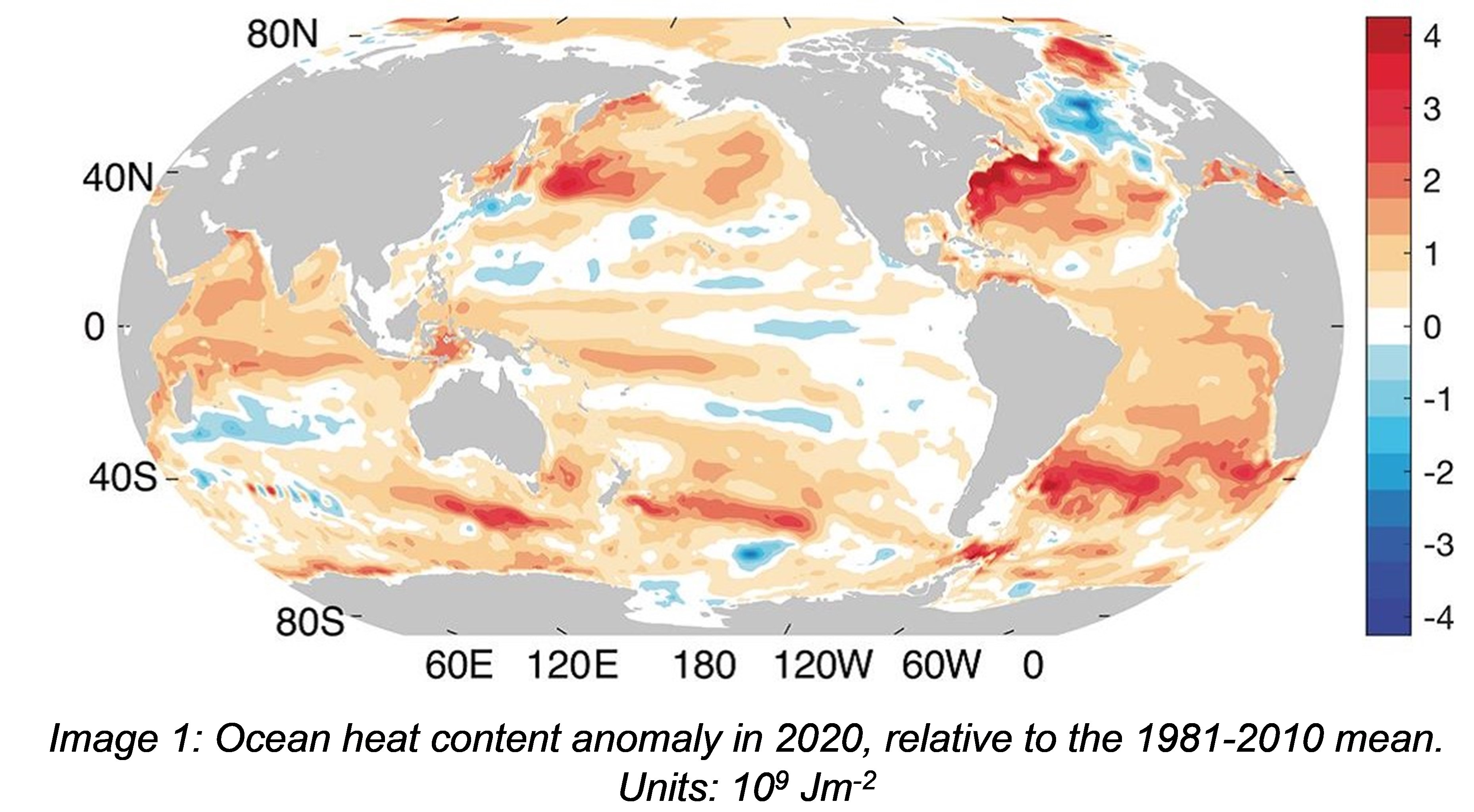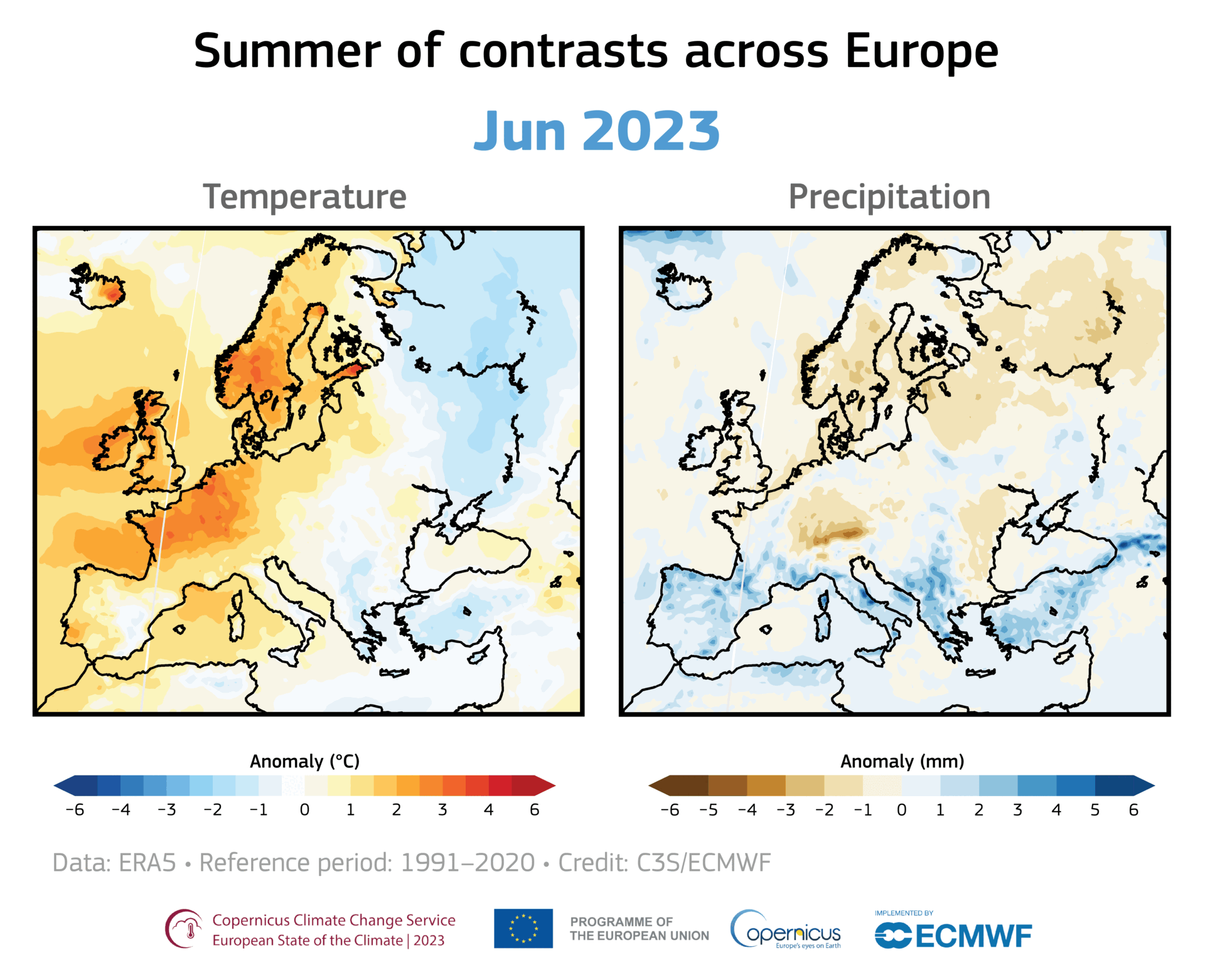

Record High Temperatures in Upper Oceans in 2020
From local to global scales, 2020 has already shown itself to be another record-breaking year. Now a preliminary study of last year’s temperatures in the uppermost 2000 m layer of the oceans has discovered that the amount of heat contained therein has increased again from 2019’s record value.
Climate change is occurring because increasing concentrations of greenhouse gases (CO2, methane etc) have disrupted Earth’s energy balance. This means that more heat is absorbed by the Earth than is lost from it to space. Over 90% of this excess heat is then absorbed by the oceans, principally in their upper levels. This leads to an increase in sea temperatures, thermal expansion of the oceans and consequent sea level rise. It should be noted that this is in addition to sea level rises caused by accelerating ice melt from ice caps and glaciers around the world.
Effects of climate change
- Looking at data from 1955 to 2020, the hottest five years for the oceans have all come since 2015.
- The pattern of anomalous heating across the globe for 2020 is shown in Image 1. The greatest warming occurred in the North Atlantic (except for an area to the south east of Greenland which was markedly cooler), the Mediterranean, the South Atlantic and the North Pacific. The arrival of La Niňa conditions prompted some cooling in the eastern Pacific.

- The Southern Ocean is thought to have absorbed 90% of anthropogenic heat in the past century.
- Thermal expansion due to ocean warming has corresponded to a sea level rise of almost 50 mm over the last sixty years.
- Most of the heat is absorbed in the upper reaches of the oceans, which results in stronger thermal stratification. Warm water is less dense than cold, therefore it is likely to stay near the surface.
- This inhibits the vertical transfer of heat within the ocean.
- As a result, the temperature of the upper layers of water increases more quickly and the capacity to store carbon there reduces more rapidly over time.
- Similarly, the vertical mixing of nutrients and oxygen with the deeper ocean is reduced. This impacts the food supply for species living near the surface.
Heat already absorbed by the ocean in response to Earth’s current energy imbalance, as well as future heat input due to the increased levels of greenhouse gases already present, are going to affect weather patterns and sea levels irrespective of what mitigation actions are carried out in the short to medium term. However, that does not mean we should abandon such measures. If adopted rigorously, they will eventually lead greenhouse gas concentrations to plateau, therefore limiting additional warming and buying humanity more time to adapt, as well as to find new solutions to the problem.
Source: Cheng, L., Abraham, J., Trenberth, K.E. et al. Upper Ocean Temperatures Hit Record High in 2020. Adv. Atmos. Sci. (2021). https://doi.org/10.1007/s00376-021-0447-x
To find more information on carbon uptake by the oceans, go to the new MetLink site.



